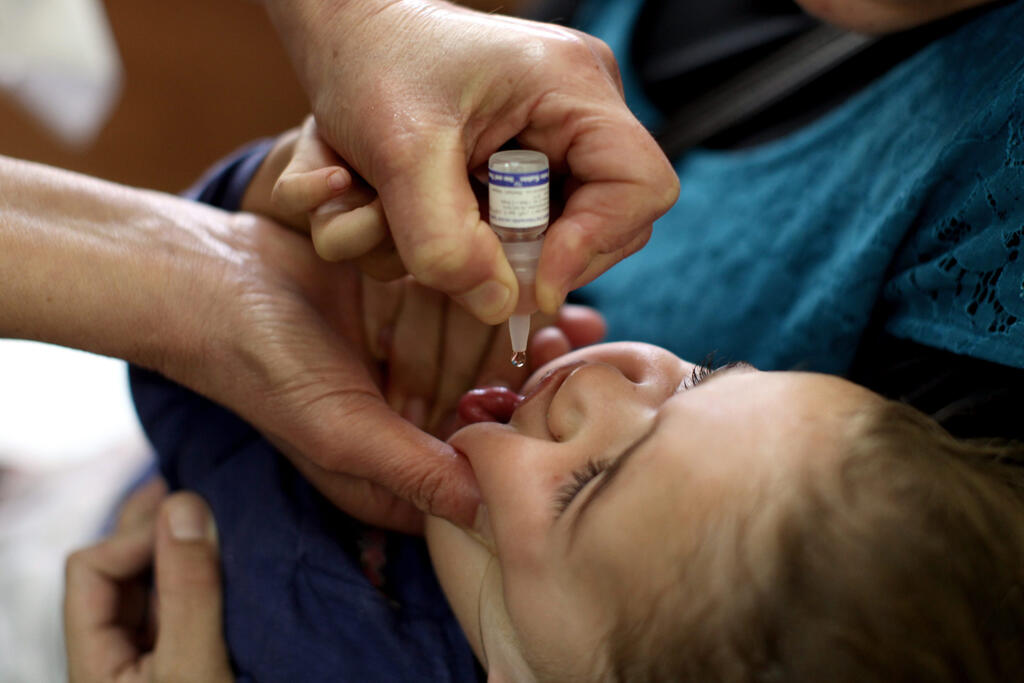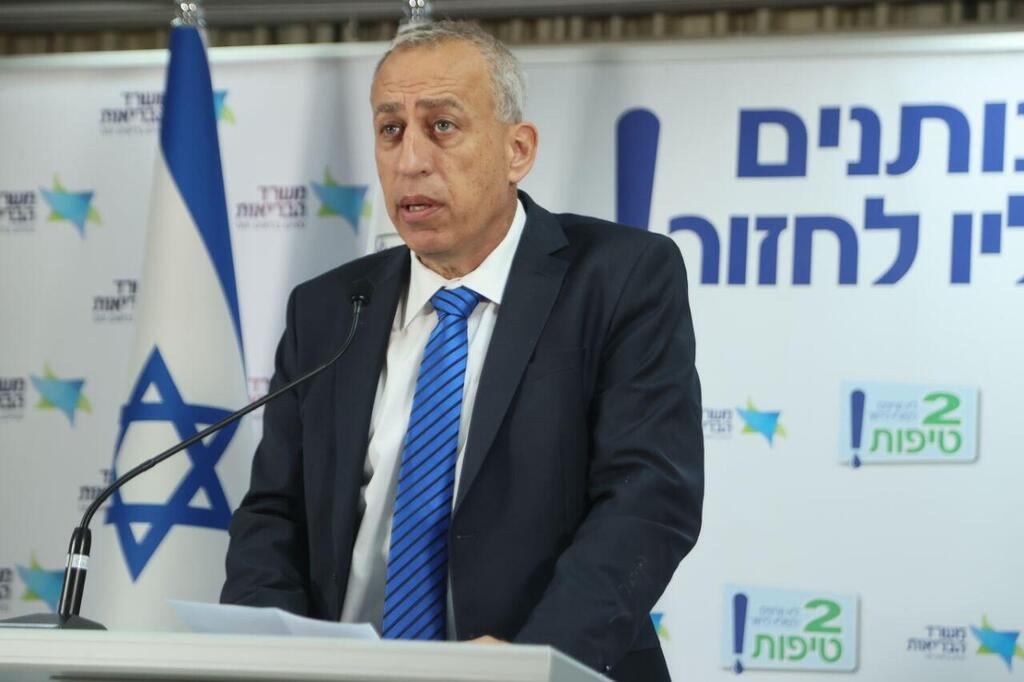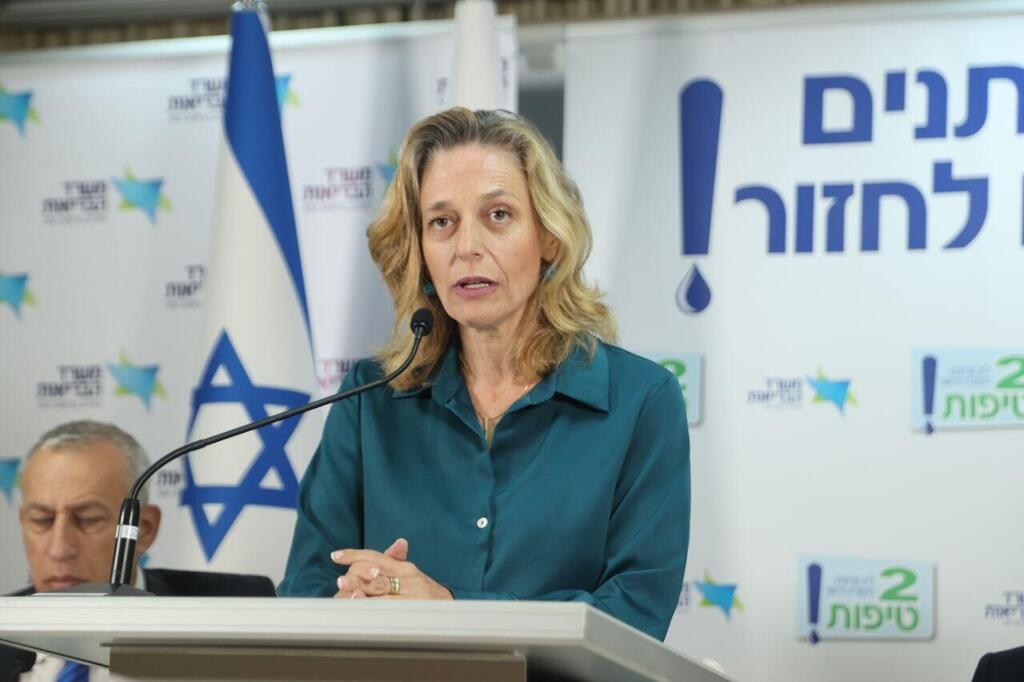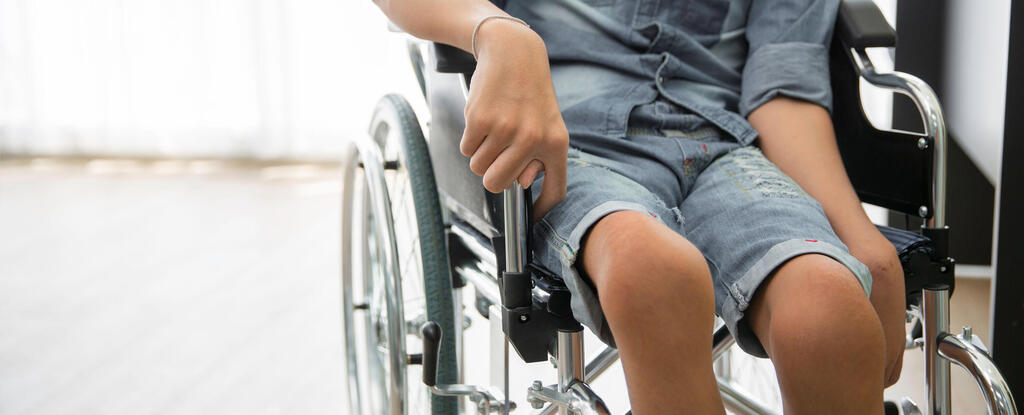Getting your Trinity Audio player ready...
Two months after initial reports of the polio outbreak in Israel, the Health Ministry said it would begin a widespread vaccination drive for children.
Vaccines will be administered to children from ages 3 months to 17 years old, with a focus on the age group who had not received the inoculation by drops between the years 2005 and 2013, when the polio vaccine was excluded from the Health Ministry's inoculation list.
Thus far, eight children were diagnosed with polio, seven of whom were not vaccinated.
"It is not a reason to panic, it is a reason to get vaccinated. Like in any case of danger of disease spread," said Health Minister Nitzan Horowitz.
The first case of polio in the recent outbreak was discovered at the beginning of March in a four-year-old girl in Jerusalem. Eight additional asymptomatic kids have been diagnosed with the virus since. "Except for one child, the kids are not fully vaccinated against polio," Horowitz said.
Amid a sewage monitoring operation it regularly conducts, the health ministry found the polio virus in several cities, including Bnei Brak and Tiberias.
"Unlike COVID, we've been familiar with the polio virus for many decades and we have the option to completely eradicate it," the minister said. "Israel has done this a decade ago and 40 years ago and we will do it again now."
The health ministry emphasizes that most infected children are asymptomatic, but can spread the virus.
The vaccination has been successful in containing the virus and stopping contagion for decades, the ministry underlines.
"Like COVID, like all viruses and public health situations, there is a strong element of social solidarity," Horowitz said.
"When I get vaccinated or vaccinate my child, I protect him, prevent the spread of the virus to other people and prevent variants. We're launching the operation nationwide to reach every girl, boy and teenager who wasn't vaccinated. We need the full cooperation of the public."
Director of the Health Ministry Nachman Ash it is important to prevent every single possible case of polio.
"It's a severe disease that we are familiar with, unfortunately, and may cause severe handicap and also risk lives," he said. "In fact, we're in a race to prevent the next case. Everyone must assume that polio can and must be eradicated," he said.
The polio vaccination has been administered in Israel since the 1950s. The first round of vaccination is an injection given to babies, after which a weaker dose of two oral drops is administered. Between the years 2005 and 2013, the weaker dose was not given because no virus had been detected for years.
After the breakout in 2013, and the detection of the virus in sewage systems, the booster dose was resumed.
Head of Public Health Services at the Health Ministry Prof. Sharon Alroy-Preis explained the procedure of vaccination, in which children receive both an injection and oral drops.
"There is no chance a child will receive drops without having received the injection first, that's the mandatory order. In order to stop this outbreak and prevent polio in Israel, we must also make sure that people can't infect each other... we can't have another child with paralysis, and there are unvaccinated children in Israel while the virus is currently circulating in several cities."
The polio virus falls under the enteroviruses category. Infection of the virus takes place amid contact with saliva or excrement secretions. In 90% of cases the virus doesn't result in symptoms, and of the 10% that do show symptoms, they include- high fever, headaches, and muscle weakness. One percent of cases result in damage to the nervous system which leads to paralysis, mostly of the legs. In very rare cases, the virus may lead to extreme paralysis and death.
Similar to most infectious diseases, babies, elderly, and immunocompromised people are at higher risk.
According to the medical experts, the vaccination grants immunity for 20 years. However, vaccination of adults is not recommended in most places, unless there is widespread infection.






